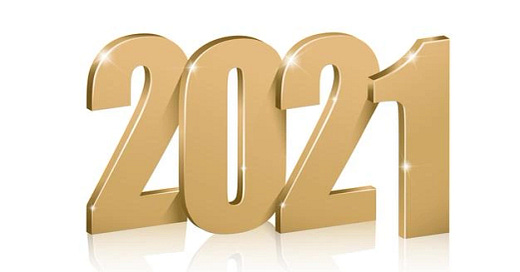It seems like a go-to Substack move, as 2021 draws to a close, is to use the end of the year as an excuse to repost highlights from the year. I’m not one to pass up a chance to toot my own horn, and so I’m going to share some of the favorite pieces from throughout 2021. Hopefully this post can serve as an easily shareable guide to what Undrafted is all about. In other words, tell your friends!
January
In some ways this piece has aged poorly, as tonight’s College Football Playoff games include two teams making their CFP debut—Michigan and the first Group of Five team to make it, Cincinnati—and a third, Georgia, that’s only made it once before. This would seem to undercut my argument that the CFP is a failure that simply recycles the same matchup year after year.
But even in this year of comparative Cinderellas, it’s worth noting how boring the CFP still is: We’ve once again got two SEC teams, including Alabama in its seventh playoff, and the Big Ten champion. If history is any guide, both of tonight’s games will be blowouts. And so I still think the CFP is an illustration of the failures of incrementalism…
February
This piece was sort of a foundational text for Undrafted, an idea I’ve revisited a bunch of times, including just last week. So much of the failure of Jacksonville’s Urban Meyer experiment came down to giving a coach too much power. The power to hire racist coaches, the power to sign Tim Tebow, the power to kick players, the power to bench guys for no reason, etc. One way to address this is to try to hire someone who will never abuse their power. Or you could just take away their power…
March
This was a fun one. As part of a series on analyzing the relationship between coaches and class, this piece used coaching as a way of breaking down the professional-managerial class. Coaches help cut through the culture war stuff that is often lumped into discussions of the PMC, since coaches and players are part of the same sports culture. But their interests are often opposed, and when it comes down to it, coaches will generally identify with ownership over players.
April
I really hate the infield fly rule. Mostly for baseball reasons, but also because it’s a perfect example of neoliberalism’s stupidity.
May
Aaron Rodgers had a really weird year, huh? This piece was several Rodgers news cycles ago, so it’s interesting to revisit now that he seems like a less sympathetic figure. Perhaps he was unhappy with the Green Bay front office because he’s just a weird guy who’s impossible to please? Either way, it’s worth remembering that “central planning” happens under capitalism too.
June
In some ways, I started this newsletter so I could write this one. The joke behind “Bobby Bonilla Day” is a shitty joke that makes it seem like any athlete who gets paid is running some kind of scam. But the Mets won the Bonilla deal…
July
This was one of a series of posts from last summer about how people in the media—particularly white people—can’t help but make discussions of racism about individual attitudes and behavior, even when throwing around terms like “systemic racism.” Everyone seems to have turned on Scottie Pippen, but I still think he was mostly right here.
August
“Net worth” numbers are made up and irrelevant. Please stop citing them.
September
I’ll try to avoid repeating myself on this one—I already wrote so many pieces about integration. But this one, about Elston Howard and the Yankees, was probably my favorite.
October
A real pet peeve of mine is when fans or analysts focus on strategic decisions over player performance. It’s dehumanizing to imagine players are mere pawns being moved around by coaches and GMs, and sucks a lot of the fun out of sports. The focus on Phil Nevin’s decision—which probably cost him his job—to send Aaron Judge, instead of the play necessary to throw Judge out in the 2021 AL Wild Card game was one of the worst examples.
November
The research required for this one—reading reports of sexual harassment and workplace abuses at four different teams—was not enjoyable, but I think this subject will only get more important. As investigations into toxic work environment become more common, there will be a deliberate attempt to obscure what causes them (a lack of empowered workers).
December
Finally, we’ve got my recent piece on how the MLB lockout illustrates that the class divide is not as simple as rich vs. poor, and how fighting inequality requires more sophistication that simply romanticizing poor workers.



